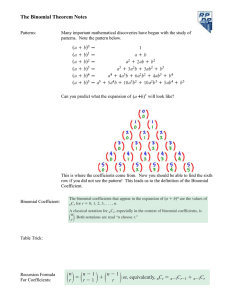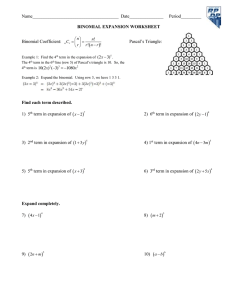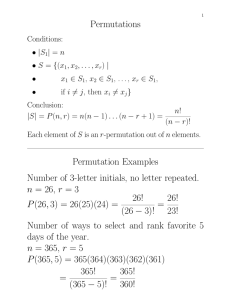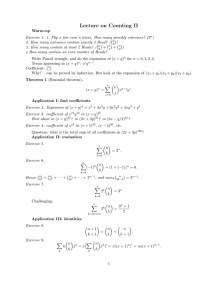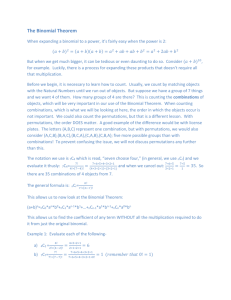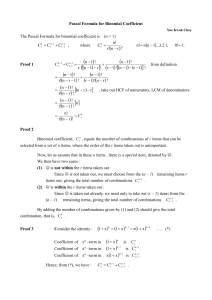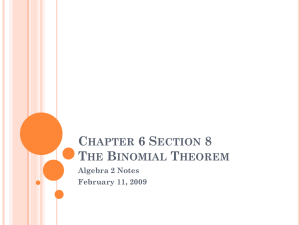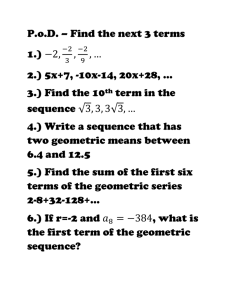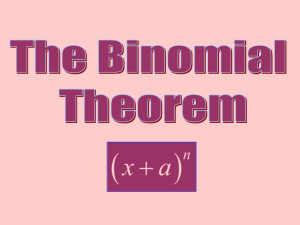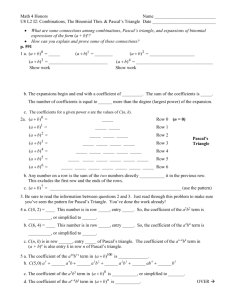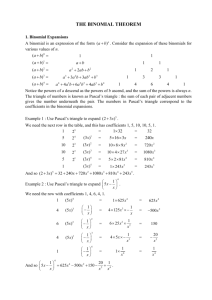Binomial Theorem Explained: Examples & Practice Questions
advertisement
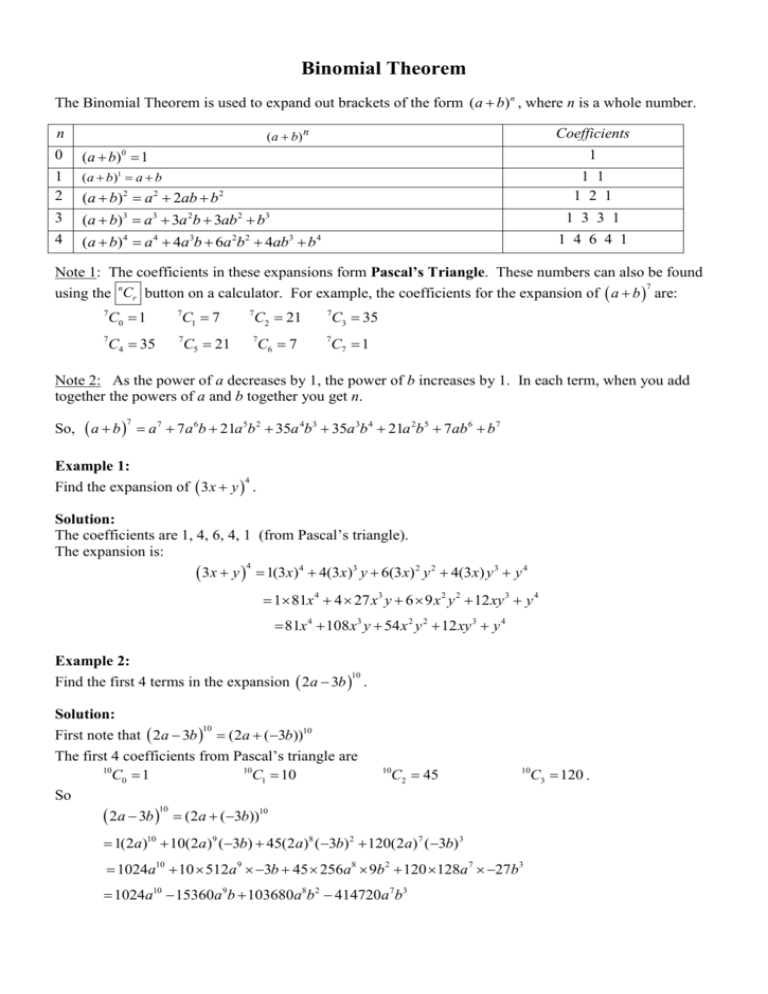
Binomial Theorem The Binomial Theorem is used to expand out brackets of the form (a b)n , where n is a whole number. n Coefficients ( a b) n 0 ( a b) 1 1 2 (a b)1 a b 3 (a b)3 a3 3a 2b 3ab 2 b3 4 (a b) a 4a b 6a b 4ab b 1 0 (a b) a 2ab b 2 2 4 4 1 1 1 2 1 2 3 2 2 1 3 3 1 3 1 4 6 4 1 4 Note 1: The coefficients in these expansions form Pascal’s Triangle. These numbers can also be found 7 using the nCr button on a calculator. For example, the coefficients for the expansion of a b are: 7 C0 1 7 C1 7 7 C4 35 7 C5 21 7 C2 21 7 C6 7 7 7 C3 35 C7 1 Note 2: As the power of a decreases by 1, the power of b increases by 1. In each term, when you add together the powers of a and b together you get n. So, a b 7 a 7 7a 6b 21a 5b 2 35a 4b3 35a 3b 4 21a 2b5 7ab 6 b 7 Example 1: 4 Find the expansion of 3x y . Solution: The coefficients are 1, 4, 6, 4, 1 (from Pascal’s triangle). The expansion is: 4 3x y 1(3x)4 4(3x)3 y 6(3x)2 y 2 4(3x) y 3 y 4 1 81x 4 4 27 x3 y 6 9 x 2 y 2 12 xy 3 y 4 81x 4 108 x3 y 54 x 2 y 2 12 xy 3 y 4 Example 2: 10 Find the first 4 terms in the expansion 2a 3b . Solution: 10 First note that 2a 3b (2a (3b))10 The first 4 coefficients from Pascal’s triangle are 10 10 C0 1 C1 10 So 10 2a 3b (2a (3b))10 C2 45 10 1(2a)10 10(2a)9 (3b) 45(2a)8 ( 3b) 2 120(2a) 7 ( 3b)3 1024a10 10 512a 9 3b 45 256a8 9b 2 120 128a 7 27b3 1024a10 15360a 9b 103680a8b 2 414720a 7b3 C3 120 . 10 Example 3: 1 Find the coefficient of x y in the expansion of x 3 y 2 Solution: The value from Pascal’s triangle is 8C4 70. The actual term is 4 1 1 70 x (3 y ) 4 70 x 4 81 y 4 16 2 4 8 4 5670 4 4 x y 16 2835 4 4 x y 8 Revision Questions 1. Find the expansion of (3x – y)5 2. Find the coefficient of y2 in the expansion of (2y + 7)3. 3. a) Show that (2 x)4 16 32 x 24 x 2 8 x3 x 4 . b) Find the values of x for which 2 x 16 16 x x 4 . 4 4. Find the non-zero value of b if the coefficient of x 2 in the expansion of b 2 x is equal to 6 the coefficient of x 5 in the expansion of 2 bx . 8
